Our current practical research work is focused on two areas:
(1) How houses and other buildings (particularly Passive House Plus designs) can be designed to produce more energy than they need in a year, and whether they can sensibly and reliably store spare energy to act as mini power-stations storing their excess energy in clean saltwater batteries until the National Grid calls for the stored energy to help address peak demand. A key question is whether this is cheaper per unit of power, and more sustainable, than building new power stations.
(2) Modular construction that we believe may be the best way to address the problems caused by the chronic shortage of on-site construction skills in the UK. The main objective of this research is to provide, at the lowest possible price, the consistently high standard of work required to deliver Passive House projects.
This update focuses on the first of these two areas of research:
Lark Rise Energy Concept - house as mini power station for the National Grid
The technology is now available for the UK to operate on a 100% renewable energy grid, and prototypes like Lark Rise show how this could be achieved while at the same time providing comfortable, healthy homes with extraordinarily low running costs for the benefit of current and future generations.
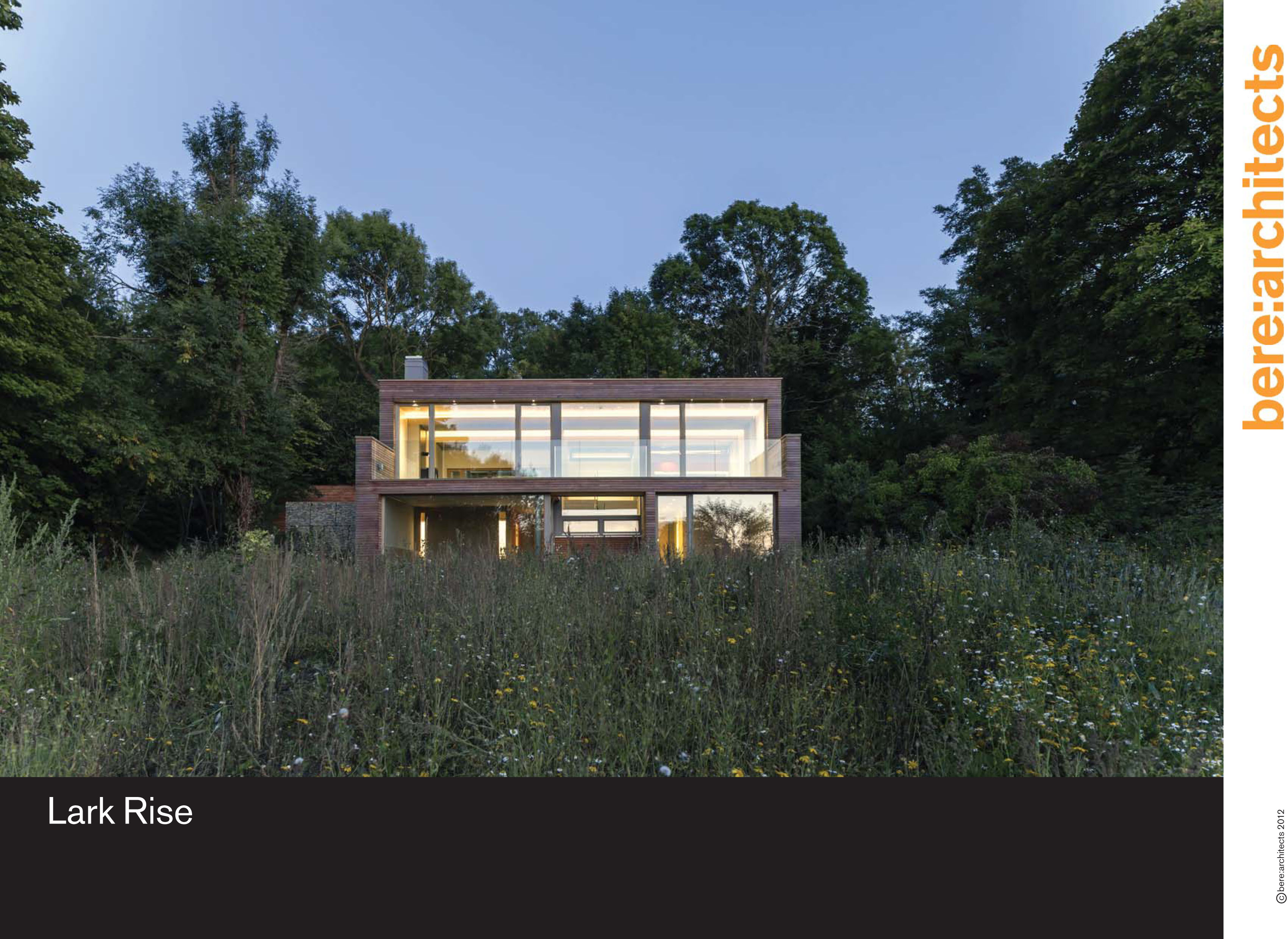
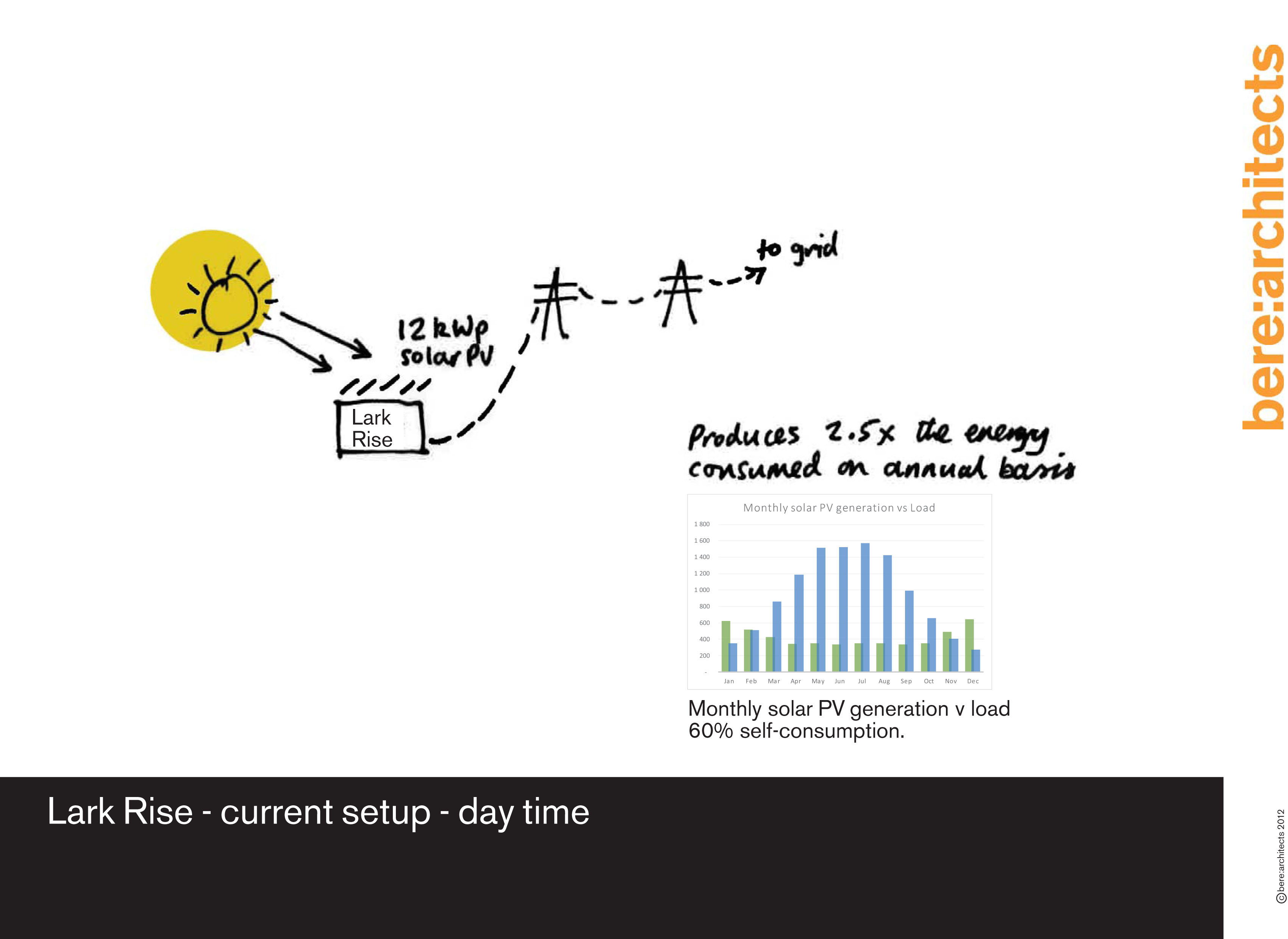
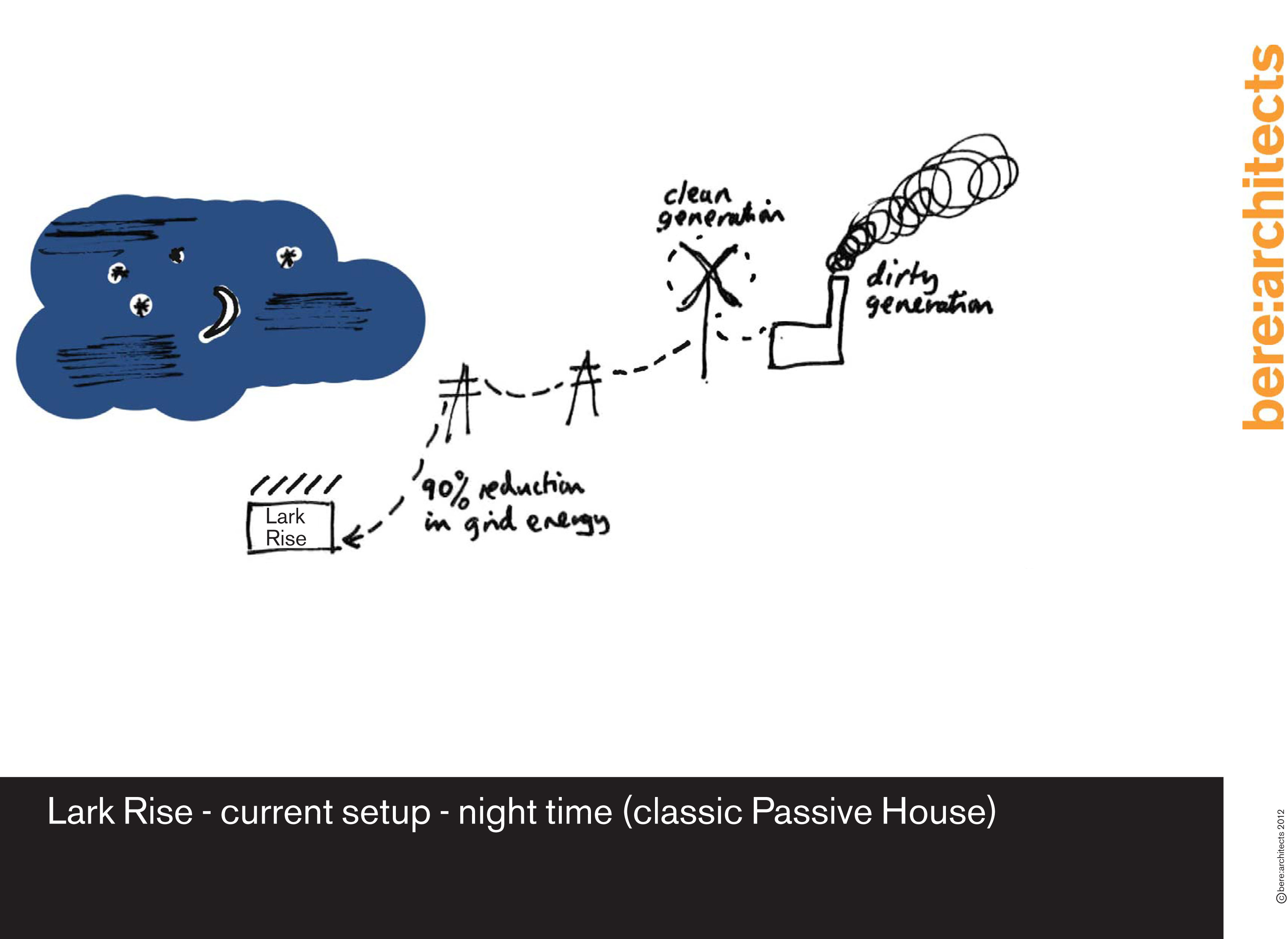
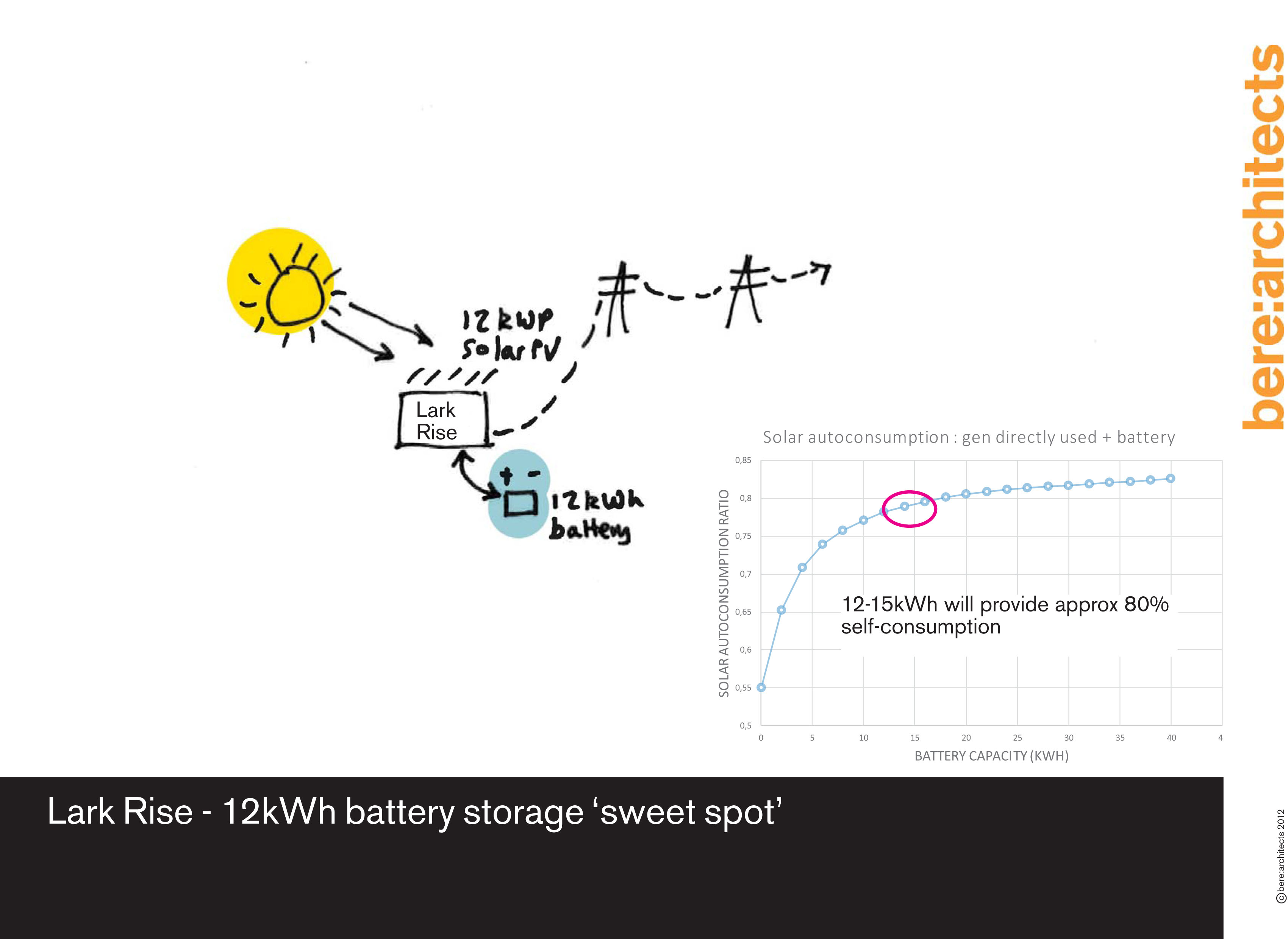
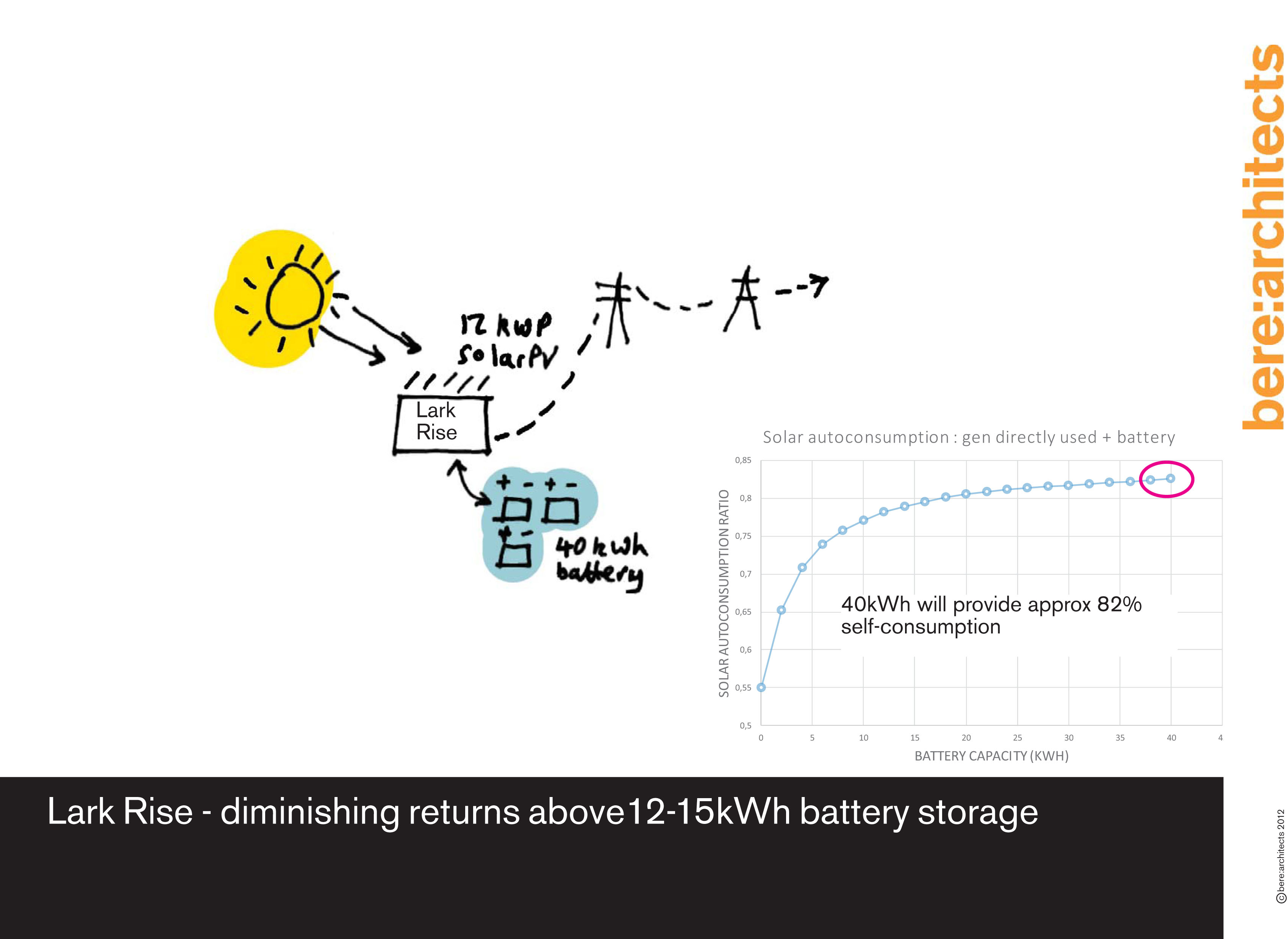
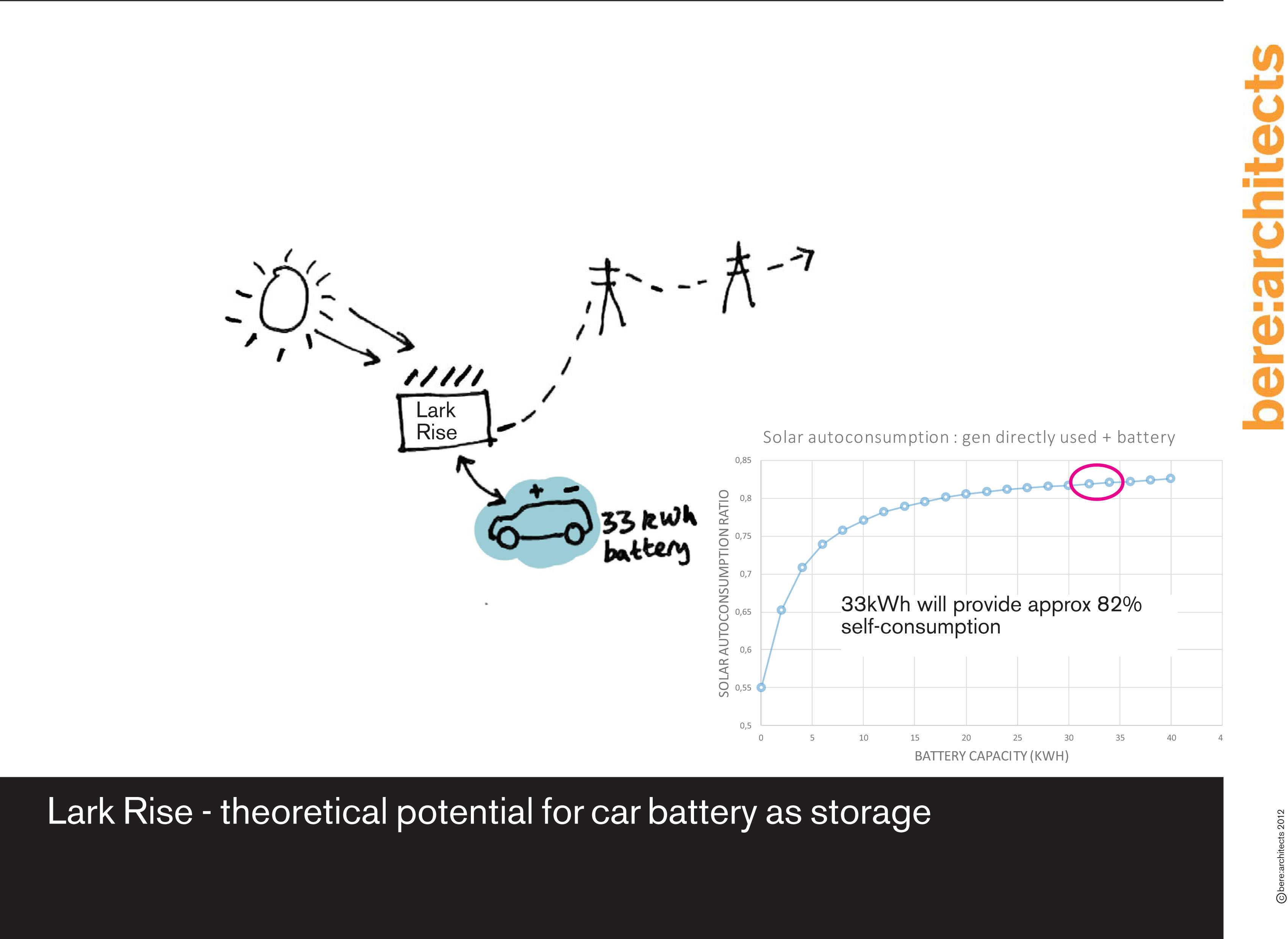
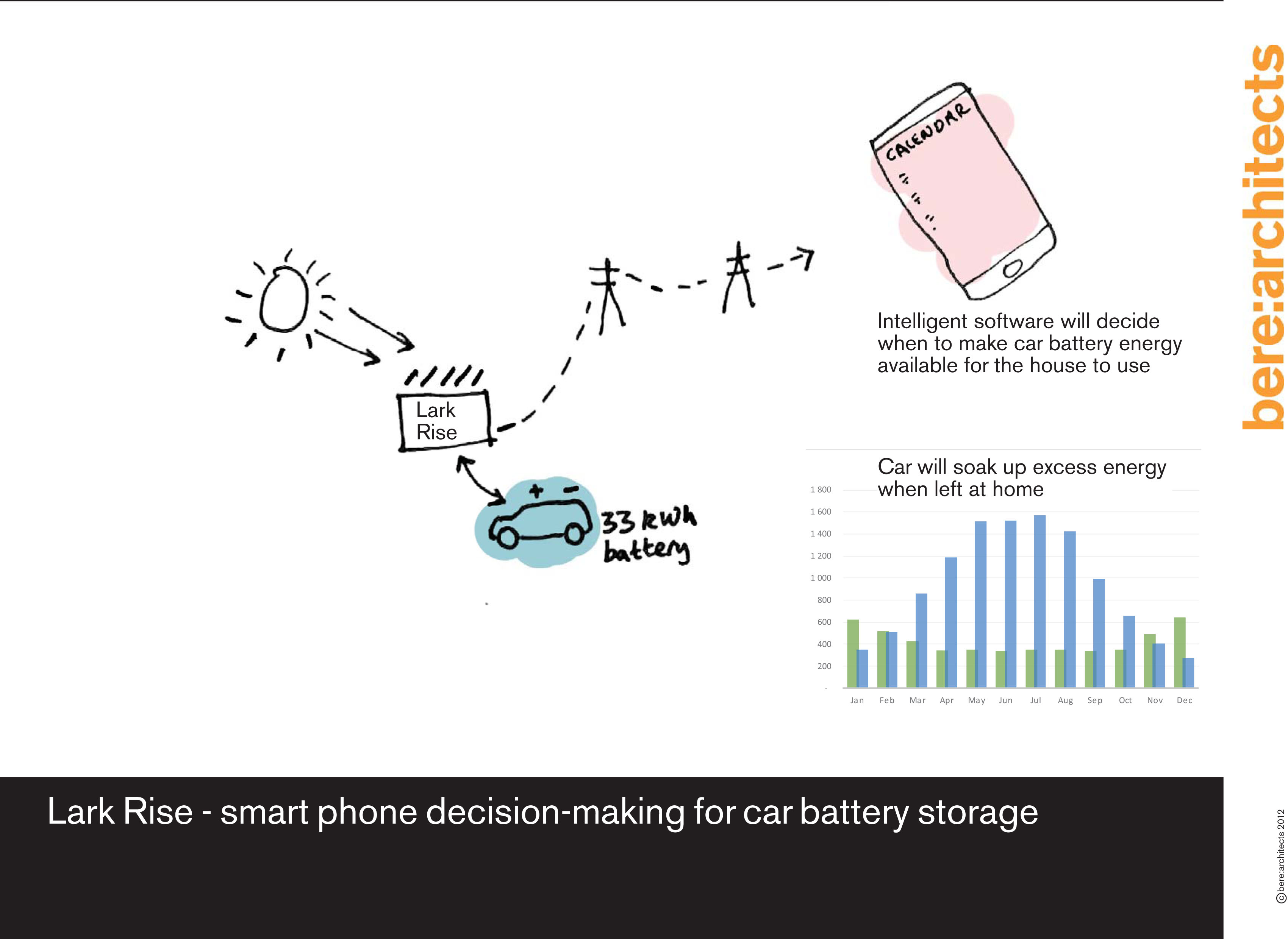
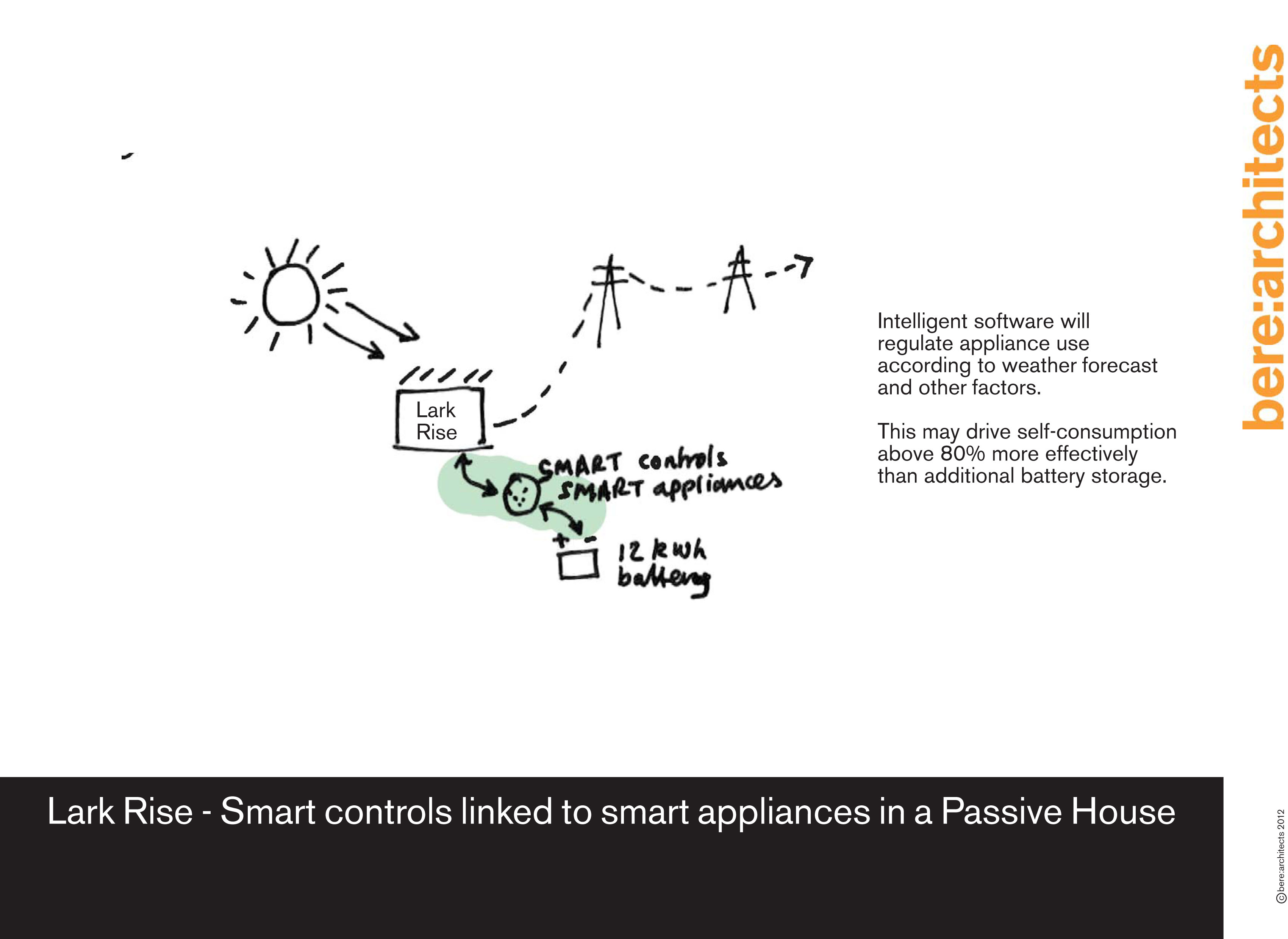
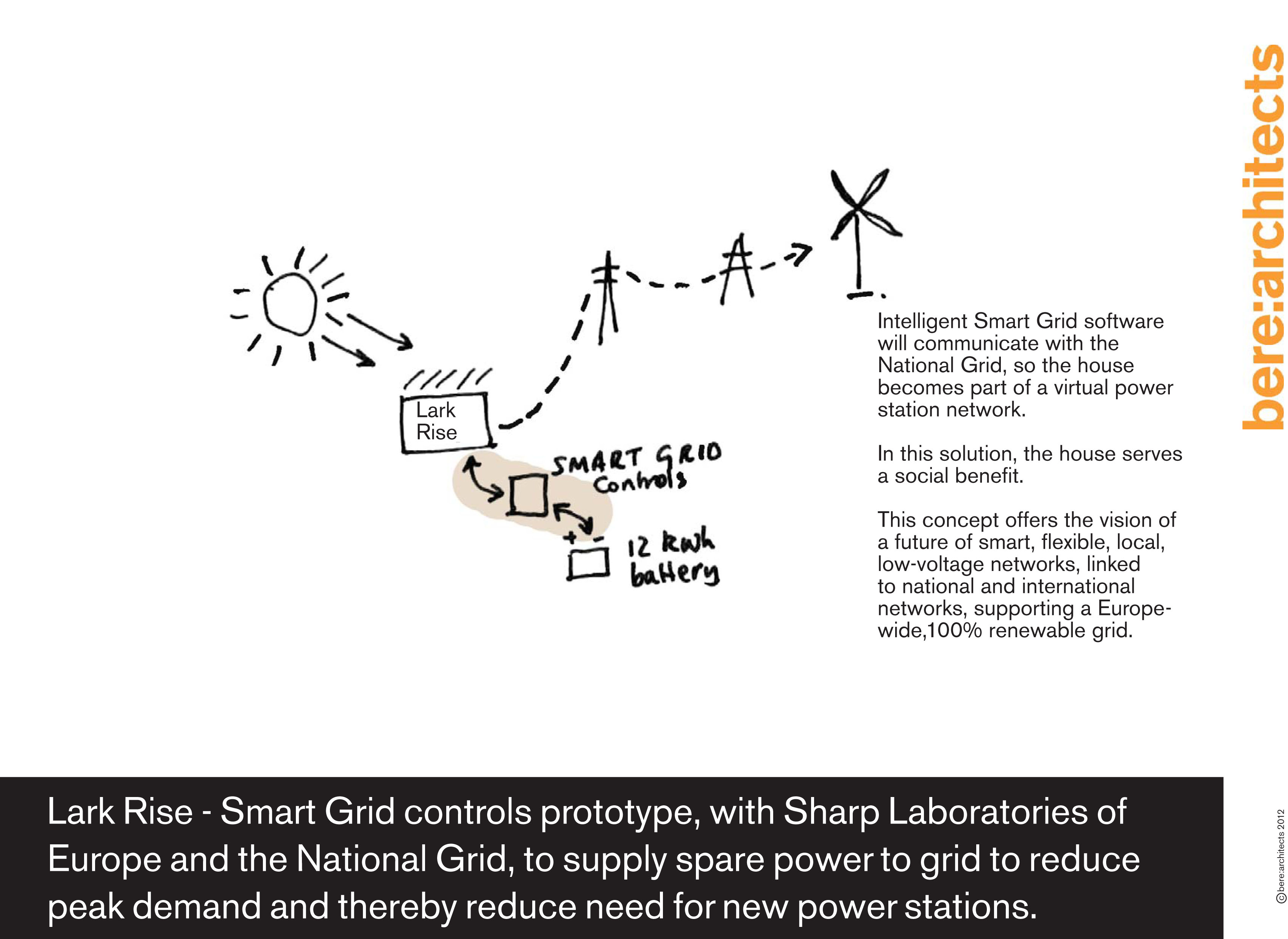
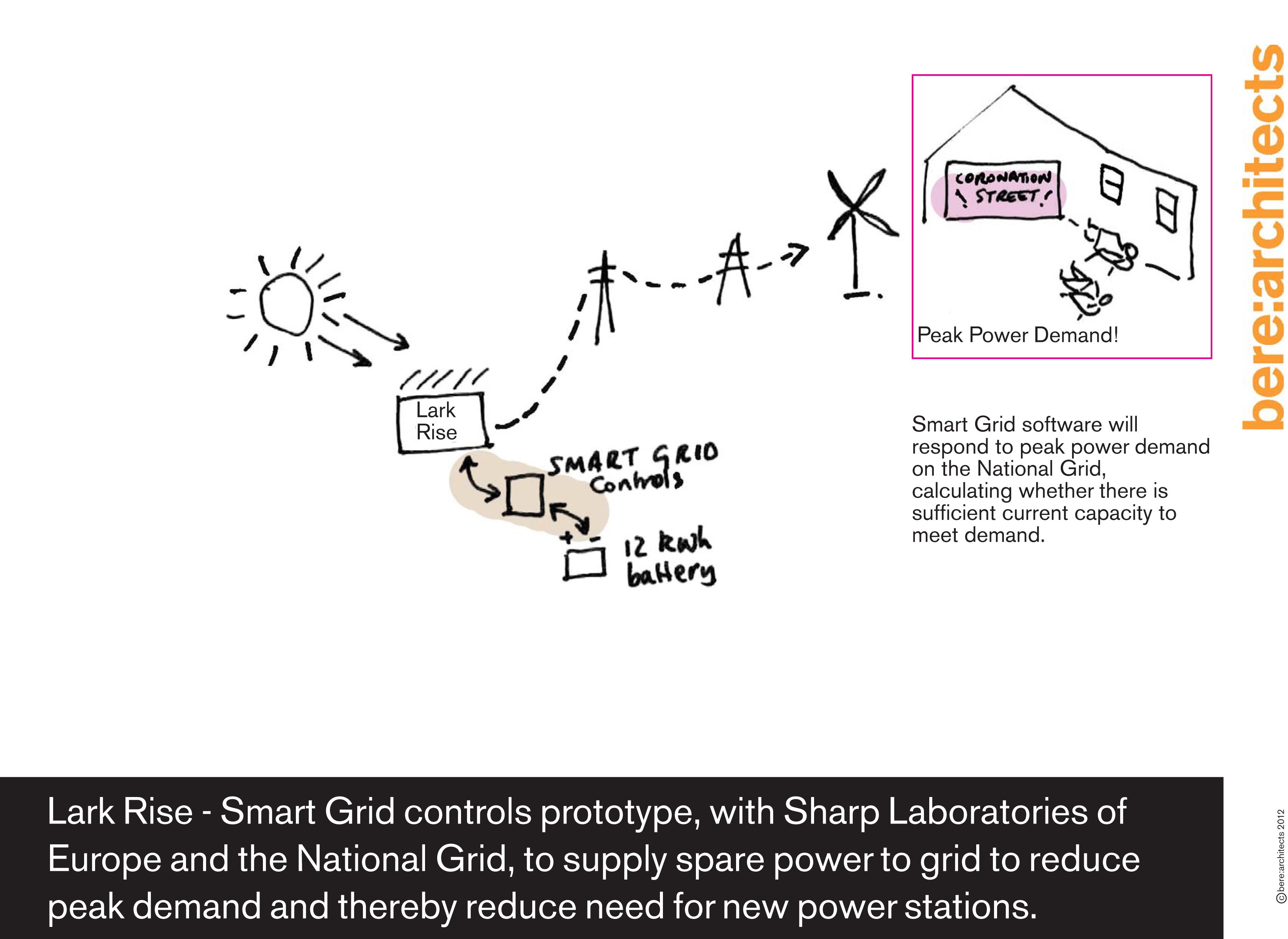
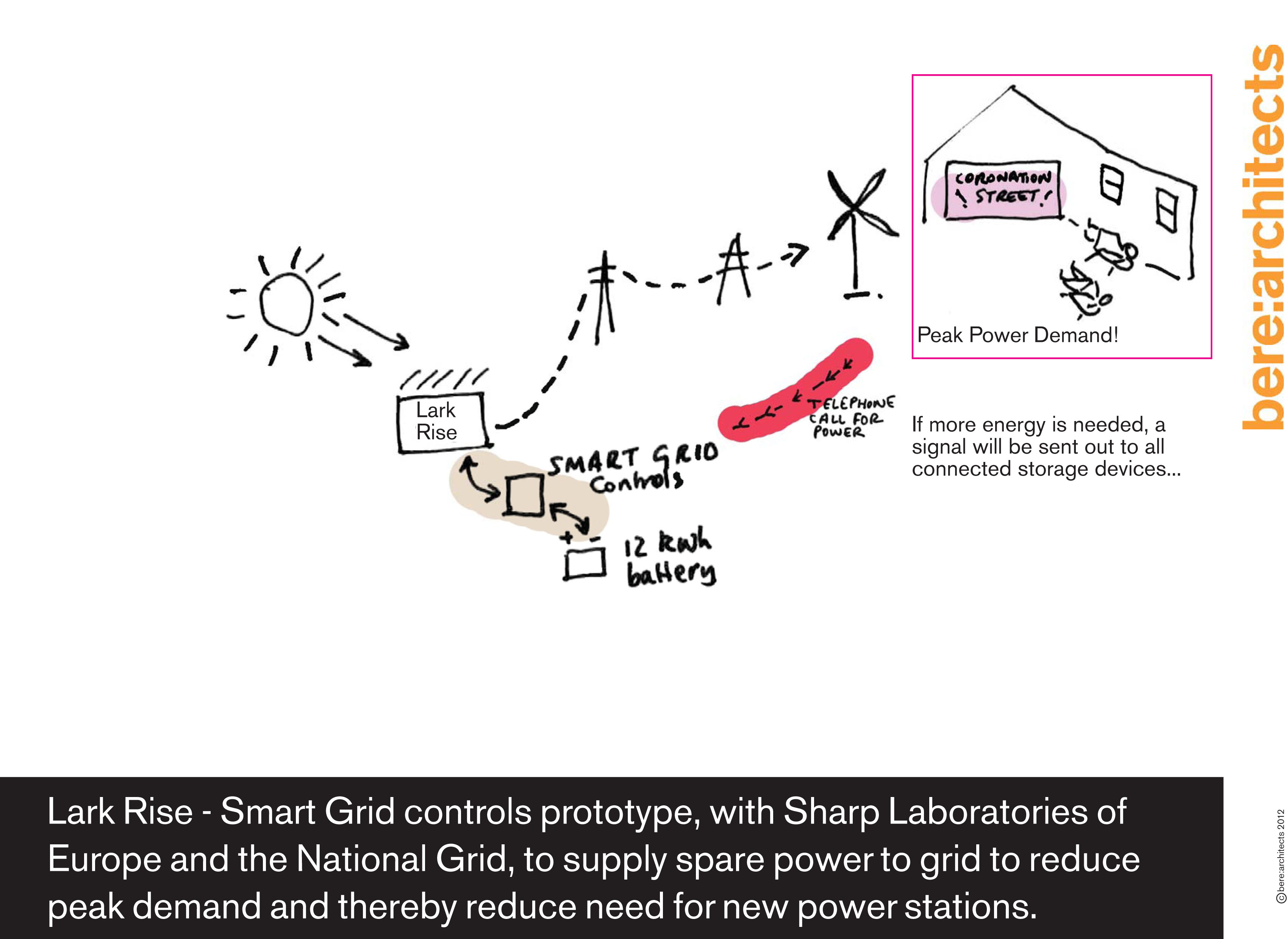
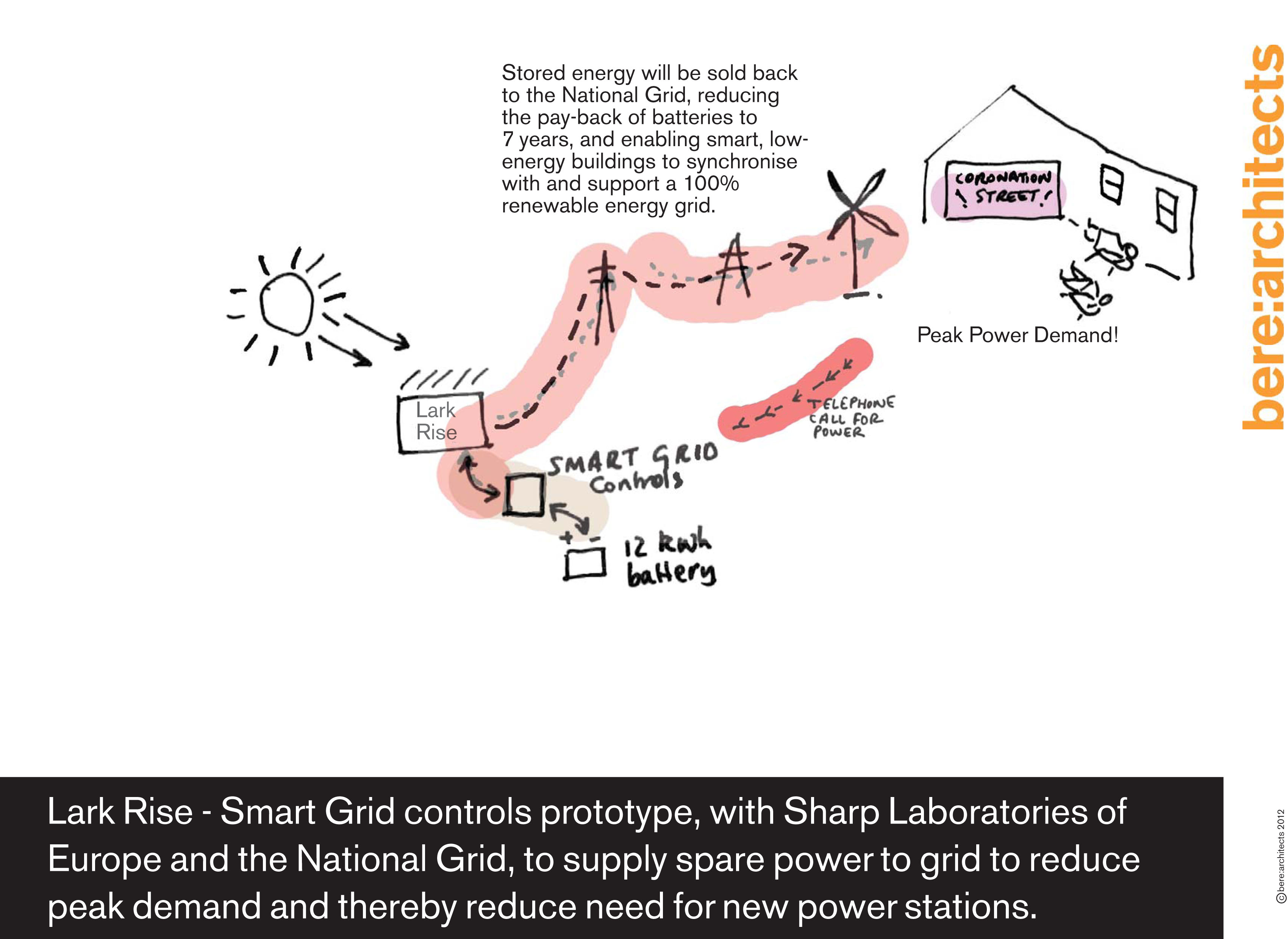
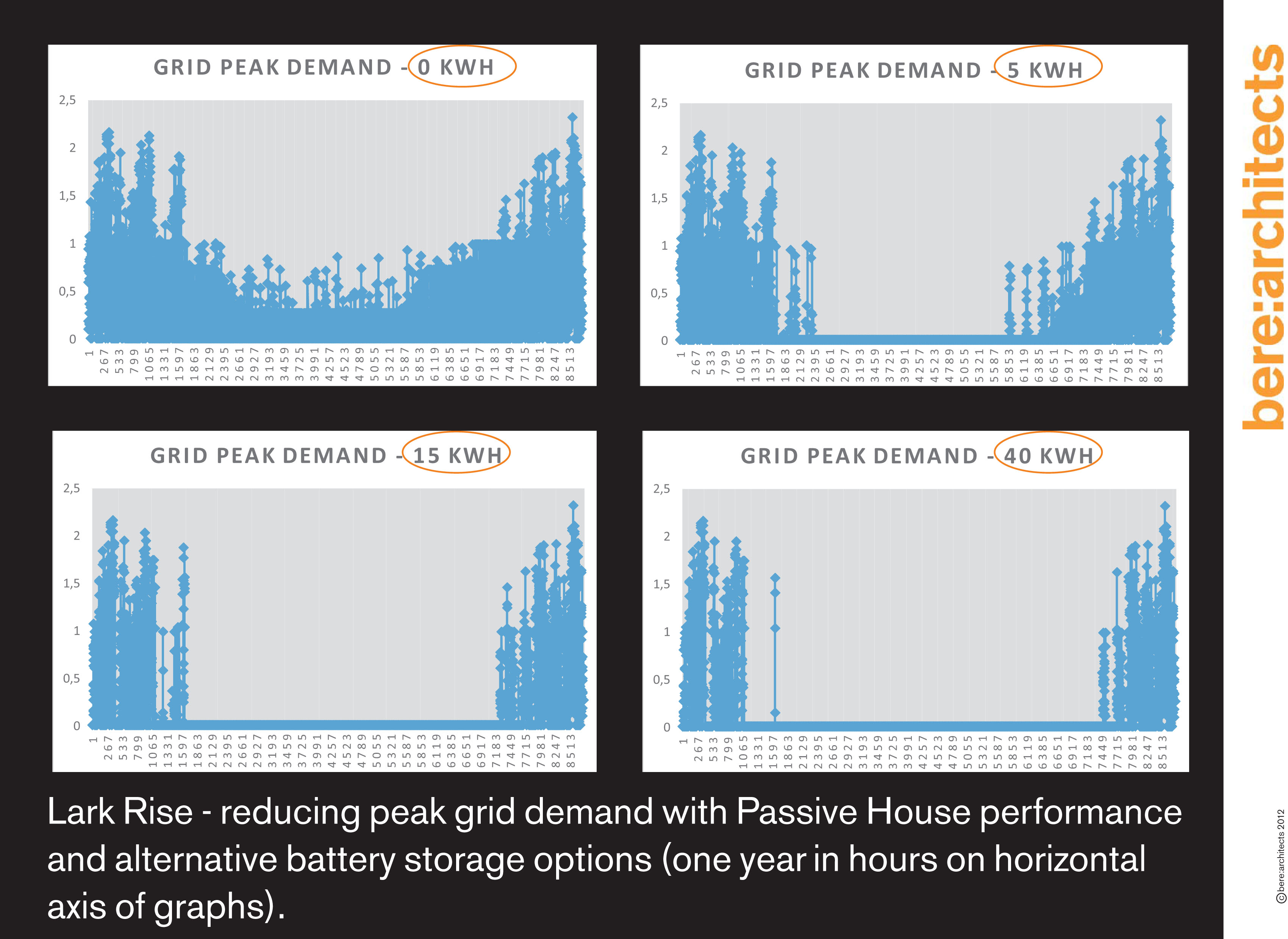
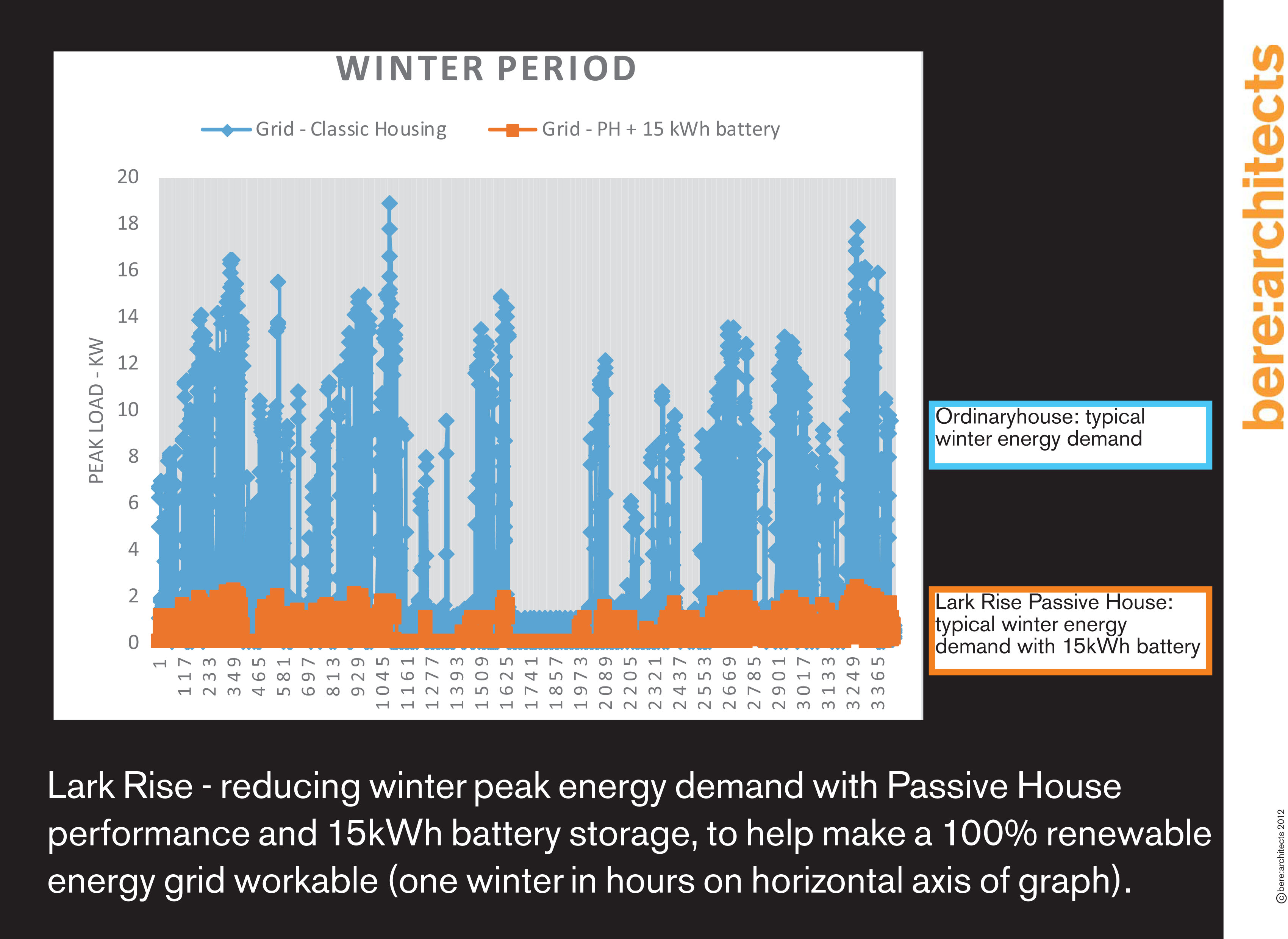
Renewables can provide the base load requirements of the UK.
It is relevant to note here that Recent UCL analysis shows that renewable energy can meet the UK’s baseload requirements, and that nuclear energy is not needed to supply baseload requirements. Indeed, the UCL analysis suggests that Hinkley Point will be obsolete within a decade.
The planned Hinkley Point C nuclear plant will be outpaced by cheaper, lower-carbon energy sources that will render it largely obsolete within a decade of opening, University College London analysis (published 16 Sept 2016) indicates.
The analysis, based on National Grid’s own energy scenarios, shows that by 2030 wind and solar energy sources will, for increasing periods of the year, be meeting all the UK’s electricity needs. With Hinkley not expected to being operating until well into the 2020s, the plant is likely to be directly competing with more environmentally-friendly, and often much cheaper, energy sources – effectively tying the British consumer and taxpayer to an increasingly obsolete and irrelevant source of energy.
The findings suggest Hinkley Point could only operate at ‘baseload’ – a term used to describe the traditional function of large coal, gas and nuclear plants like Hinkley to supply a steady minimum level of energy to the market – if it forces these renewables sources off the system. Otherwise, it would have to reduce its own output, which could strain its operation and reduce its promised revenues.
This means that for decades British consumers will be tied to using energy that is far more expensive than readily-available renewable sources like wind and solar.